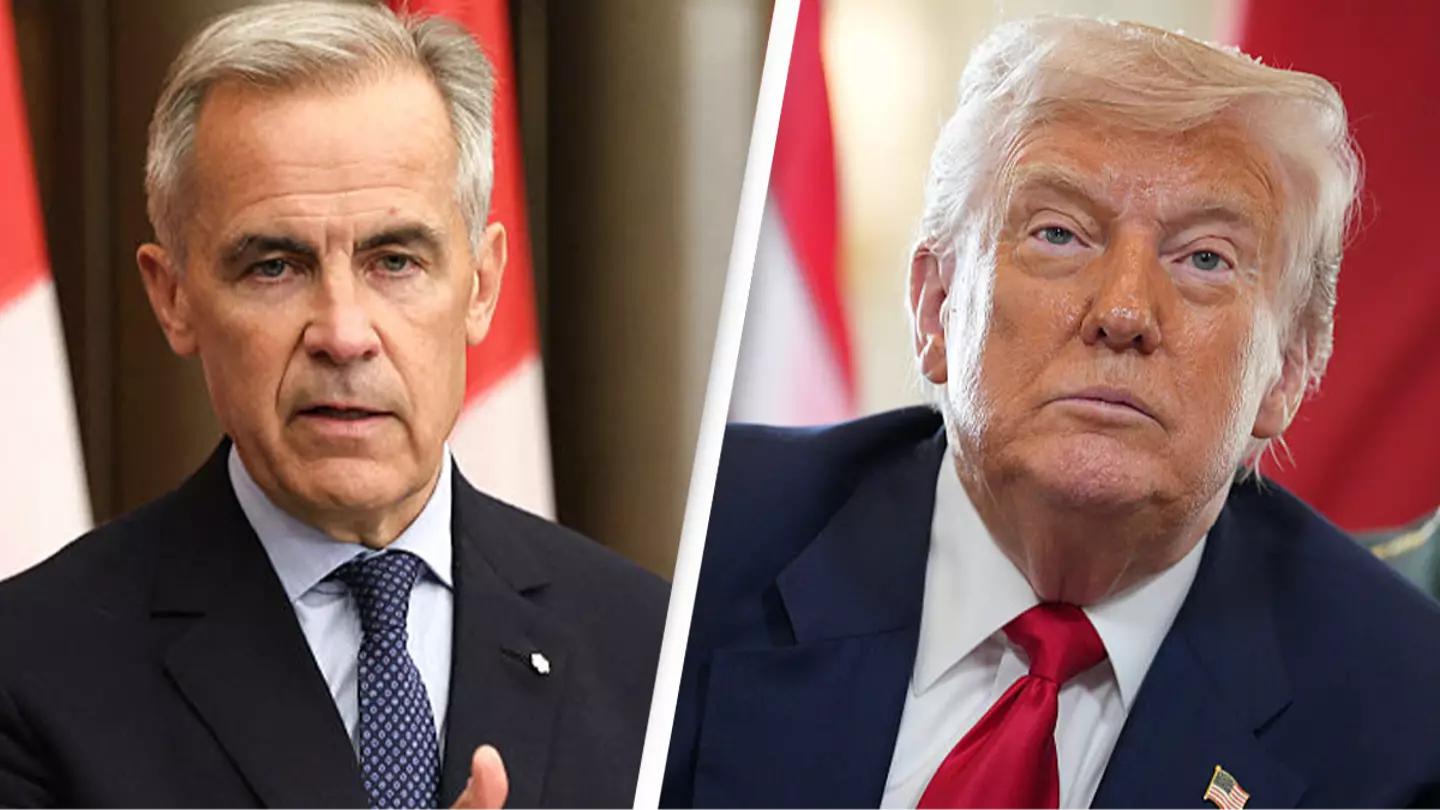Donald Trump has recently stirred controversy with Canada due to his announcement about increasing tariffs, prompting a response from Mark Carney.
The United States has upset one of its closest trading allies, Canada, as Trump has introduced measures that will increase the cost of international trade.
Trump has consistently supported tariffs, arguing that they encourage consumers to purchase more American products. However, many critics have opposed this shift, pointing to the disruptions it causes in global trade relations.
Approximately three months ago, on April 2, Trump declared a 10% ‘baseline’ tariff on nearly all imports and expressed willingness to negotiate individual trade deals with other countries.
This led to a 90-day pause, which has been extended until today (Aug 1).
For Canada, this change means that their tariff, previously at 25 percent, has increased to 35 percent, effective from 4 A.M.
Nonetheless, most Canadian goods will remain exempt due to an existing trade treaty.
In light of Trump’s actions, Canadian Prime Minister Mark Carney issued a statement criticizing the decision.
He expressed his ‘disappointment’ with Trump and emphasized that his government will concentrate on strengthening Canada through investment and expanding export markets.
He stated: “Canadians will be our own best customer.
“We can give ourselves more than any foreign government can ever take away by building with Canadian workers and by using Canadian resources to benefit all Canadians.”
Carney also mentioned that the US justified the 35% tariff based on the cross-border flow of fentanyl, despite Canada only accounting for 1% of US fentanyl imports and working diligently to further reduce these amounts.
The statement further outlined Canada’s dedication to addressing the drug issues impacting both the US and Canada.
It declared: “Canada’s government is making historic investments in border security to arrest drug traffickers, take down transnational gangs, and end migrant smuggling.
These efforts include thousands of new law enforcement and border security officers, aerial surveillance, intelligence and security operations, and the strongest border legislation in our history.

